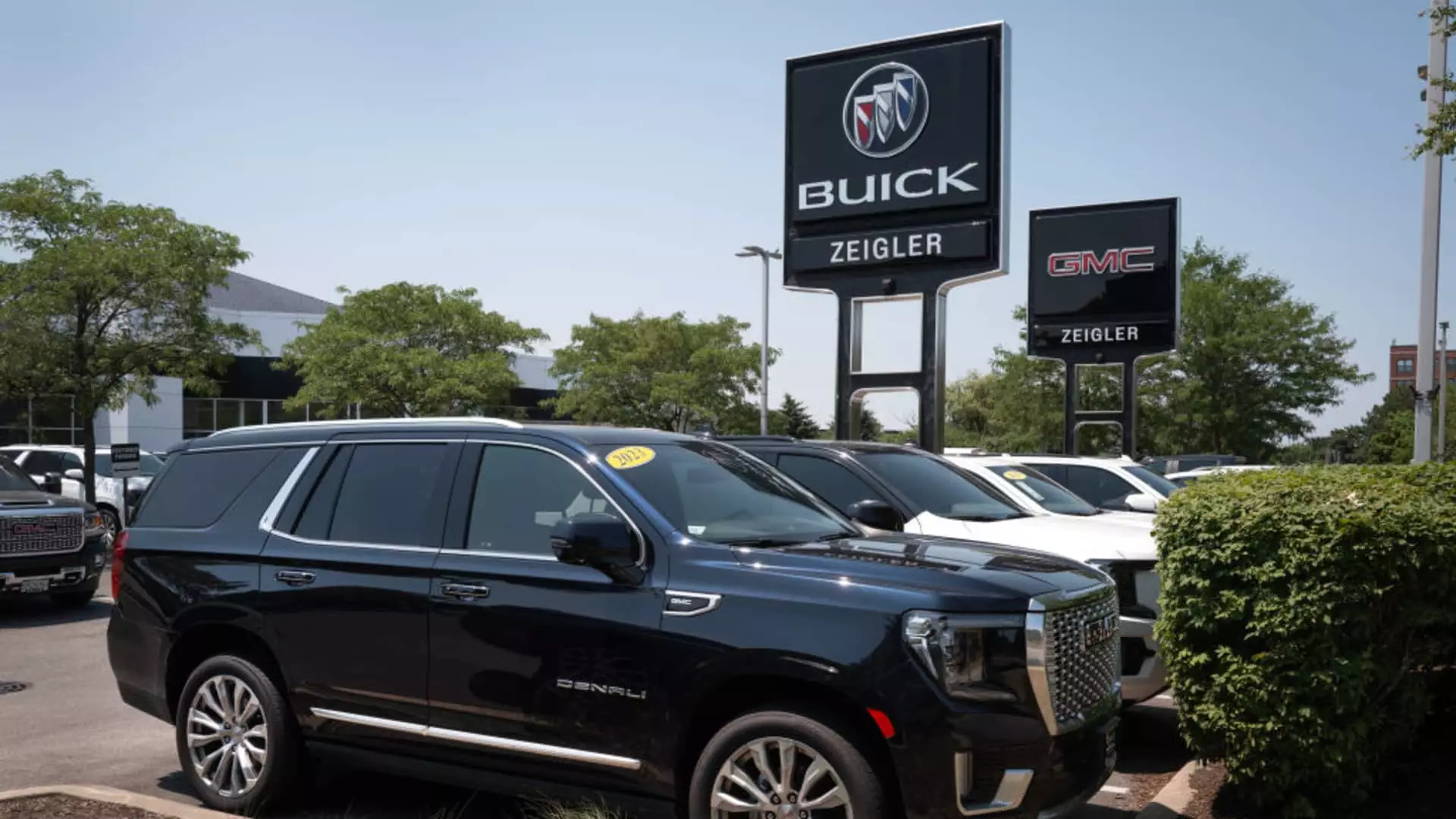General Motors has reported its best quarterly sales in over three years, showcasing significant increases in both full-size pickup trucks and electric vehicles. The Detroit-based automaker revealed that in the second quarter, sales reached 696,086 units, marking a 0.6% increase from the same period last year. This is the highest number of units sold by GM since the final quarter of 2020. Moreover, deliveries of the company’s electric vehicles surged by 40% compared to the previous year, totaling 21,930 units. Despite this growth, electric vehicles accounted for only 3.2% of GM’s total sales for the second quarter. Sales of full-size pickup trucks by GM were particularly strong, with approximately 229,000 units sold during the period, marking a 6% increase from the previous year and the best quarterly performance since 2021. However, GM’s overall sales for the first half of the year experienced a slight decline of 0.4% compared to the same period in the previous year, amounting to approximately 1.3 million vehicles.
A notable concern affecting the auto industry’s second-quarter sales was the cyberattack on dealer software provider CDK Global. The ransomware attack on June 19 led to the shutdown of CDK’s dealer management system, affecting nearly half of all dealerships in North America. This unexpected event disrupted normal operations for dealers, particularly during a period that is usually considered highly lucrative and busy for the industry. Jessica Caldwell, the head of insights at Edmunds, expressed that the cyberattacks threw a significant challenge into the sales landscape in the latter part of June. Many dealerships, including major publicly traded ones, had to navigate delays in sales or devise alternative methods to facilitate vehicle transactions. The disruption caused by the cyberattacks is anticipated to have a lingering effect on sales, with some deliveries being postponed until the third quarter.
Various auto industry forecasters, such as Cox Automotive and Edmunds, have projected that second-quarter sales across the industry will likely remain stable compared to the previous year. This projection takes into account the slowdown in retail demand that has been observed. Despite challenges posed by the cyberattacks, GM’s second-quarter sales are anticipated to outperform the industry average. The company has acknowledged the difficulties faced by dealers using the CDK platform and assured customers that efforts are being made to manage high demand in challenging circumstances. Dealers across major franchises have disclosed their exposure to the CDK issue, with the majority relying on CDK as their primary dealership management system provider. Fortunately, unlike previous unforeseen events in the industry, the impact of the cyberattacks is not expected to result in lost sales but rather a delay in transactions that will be shifted to the third quarter.
In addition to GM’s strong sales performance, Toyota reported a notable increase in its U.S. sales during the second quarter, reaching 621,549 vehicles, up by 9.2% compared to the previous year. The Hyundai brand also experienced growth, selling 214,719 vehicles during the same period, reflecting a 2.2% increase year-over-year. However, Kia reported a 6.5% decline in its June sales, although its sales for the first half of the year showed a modest decrease of about 2%, totaling 386,460 vehicles sold. The varying performance of these automakers underscores the complex dynamics at play within the industry, influenced by factors such as market demand, product offerings, and unforeseen events like cyberattacks. As the auto sector navigates through the challenges posed by external disruptions, maintaining resilience and adaptability will be crucial for sustained growth and success.

